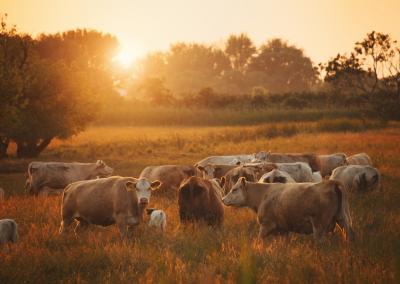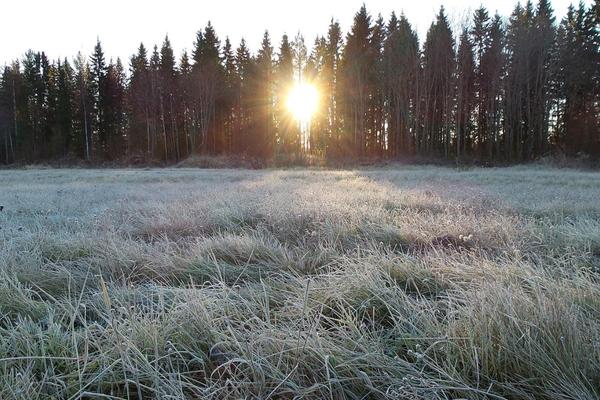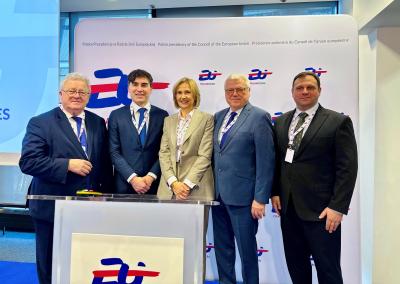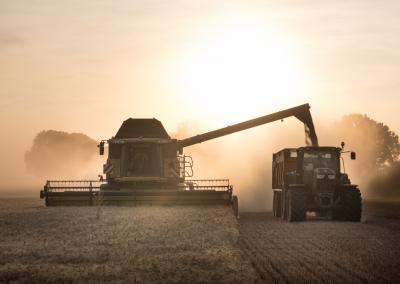Minister Hoffmann asks EC for exceptional aid for farmers affected by frost
Agriculture Minister Ignas Hofmanas, at the Council of Agriculture and Fisheries Ministers of the European Union (EU), asked the European Commission (EC) to take action by granting exceptional aid from the EU Agricultural Reserve to farmers affected by frost.
After a record warm start to March (the warmest since 1961), which led to an unusually early start to the growing season, the weather turned very cold in the last week of April, triggering a series of severe frosts which have continued ever since. These unusually long frosts, lasting more than three weeks, have caused tremendous damage to gardens and orchards that are flowering and, in some places, already bearing fruit.
The risk management measures have not been effective due to the prolonged frost. In addition, owners of orchards and berry-gardens have not been able to take out insurance as it is simply not available on the market. Damage and losses are currently being assessed, but preliminary figures show that in some regions up to 70–80% of the fruit and berry crop has been destroyed. In some places, losses could be as high as 100%.
„In view of this natural disaster, which farmers could neither have predicted nor avoided, and the losses they have suffered, we are asking the European Commission to take action by granting exceptional aid from the EU's Agricultural Reserve. We look forward to the Commission's understanding and to the solidarity of the Member States in dealing with our difficult situation," said Minister Hofmann.
We need to continue working on increased import restrictions for products from aggressor countries
The Council of EU agriculture and fisheries ministers in Brussels also discussed the state of the markets following Russia's invasion of Ukraine and the change in US tariff policy.
Minister Hofmann reiterated his full support to Ukraine. He stressed the importance of negotiating a renewed trade agreement that would substantially improve Ukraine's access to the EU market, despite the decisions that have already been taken, taking into account the current geopolitical situation. It is also necessary to continue working on the maximum possible restriction of imports of products from Russia and Belarus.
„On trade with the US, we look forward to negotiations between the EU and the US to find a mutually beneficial agreement on customs. It is important to consolidate efforts at EU level to ensure that the EU's potential response to US actions is united and effective and that EU market protection measures reflect the interests of our producers. We support the possibility of retaliatory measures to restrict imports from the US, if necessary", said I. Hofmanas, Minister of Agriculture of Lithuania.
Common Agricultural Policy (CAP) simplification package needs to be adopted as soon as possible
The EC presented its recently published proposal for simplification of the CAP during the meeting.
„Of particular importance to us are the changes to the GAEC Standard 1, the implementation of which has long been a source of tension in Lithuania. We are seeing more good proposals and the initial assessment is positive. The most important thing is to agree as soon as possible on the approval of the package so that we can implement the changes this year. This is important for both farmers and administering authorities," the Minister stressed.
Farms must be autonomous in the face of threats
The EU Agriculture and Fisheries Ministers were presented with a joint declaration by the Estonian, Latvian and Lithuanian Ministers of Agriculture on the EC's Communication "A Vision for the Agriculture and Food Sector"
.„Our position remains unchanged – it is essential to ensure a strong, autonomous, well-funded, flexible, two-pillar CAP. And to complete the external convergence of direct payments. Today, I would like to emphasise that the farms of the future must be autonomous, capable of producing what they need themselves: feed, energy or similar products. This is particularly true in the EU's eastern border regions. In the face of the threat of war, issues that we did not think about before are becoming priorities. For example, what would you do if the electricity goes out for a long time and you need to milk several hundred cows? Or how to optimise the network of drainage ditches for defence, so that they cannot be overrun by enemy tanks? It is necessary to properly assess the Ukrainian experience and prepare to counteract similar threats," the Minister said.
Lithuania supports the vision's stipulations that „security of the eastern border is important for the security of the whole of Europe“ and that „special support is needed for rural areas in the EU's eastern border regions“ and that it is expected to become a set of new measures with an ambitious challenge budget for Lithuania.















































































































